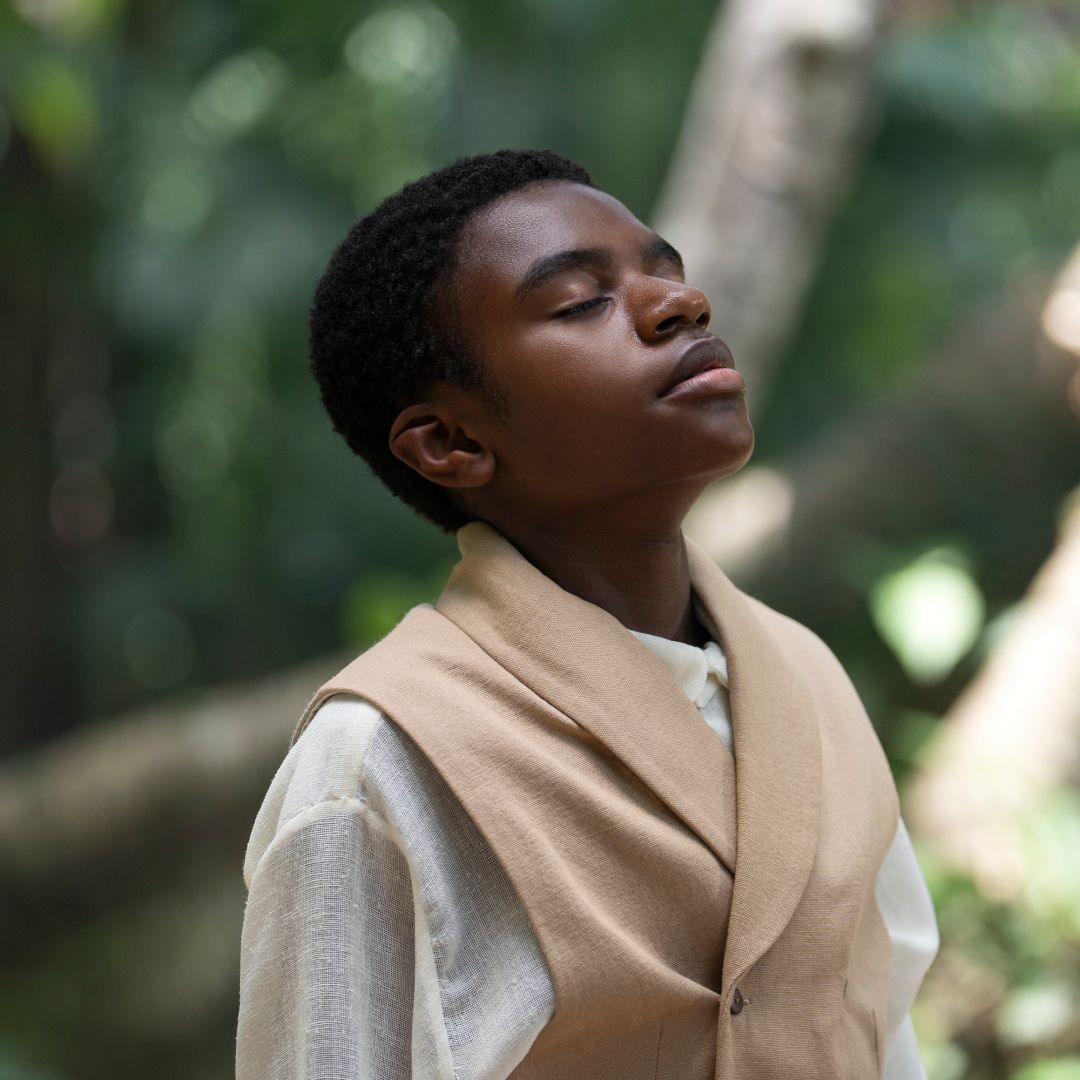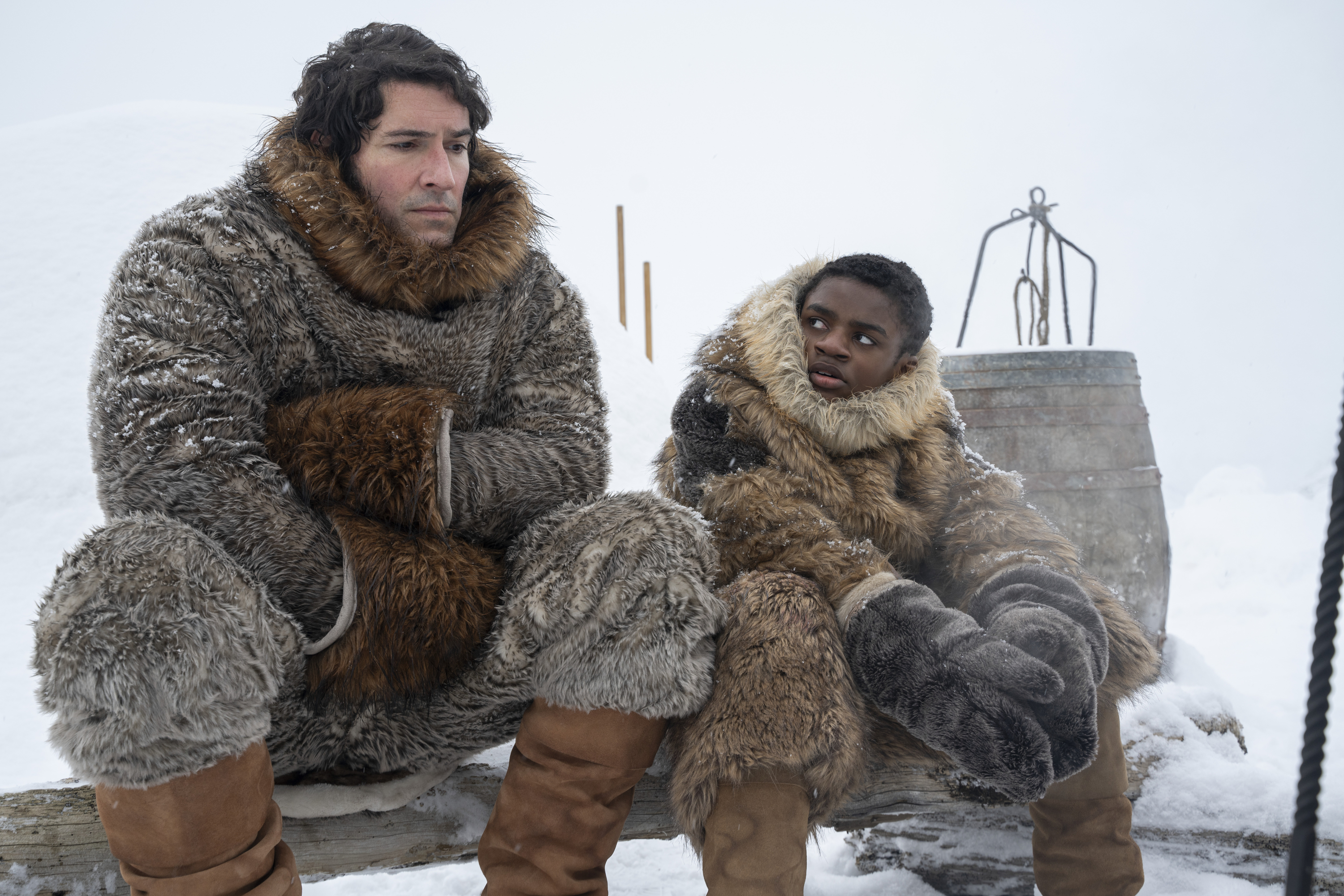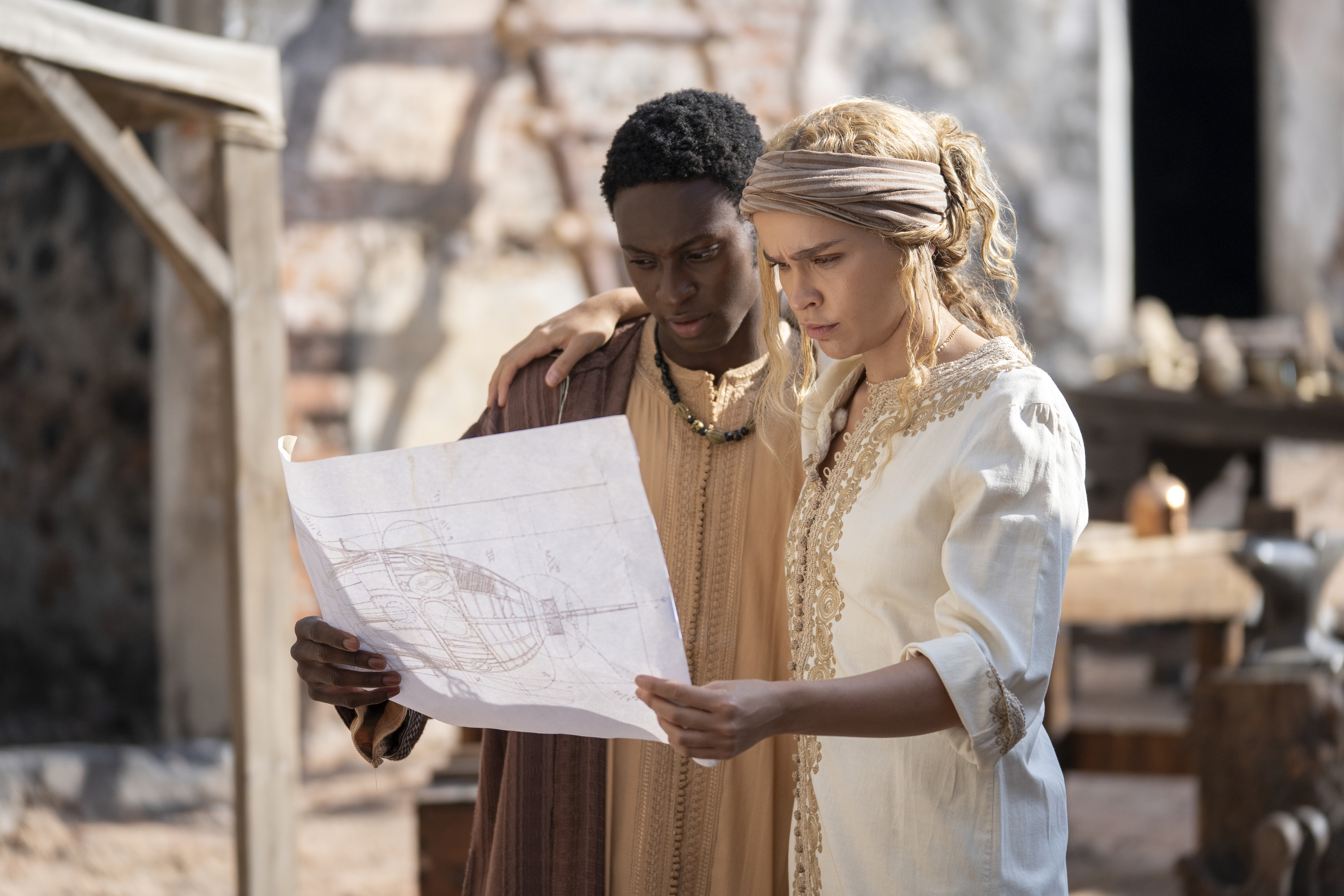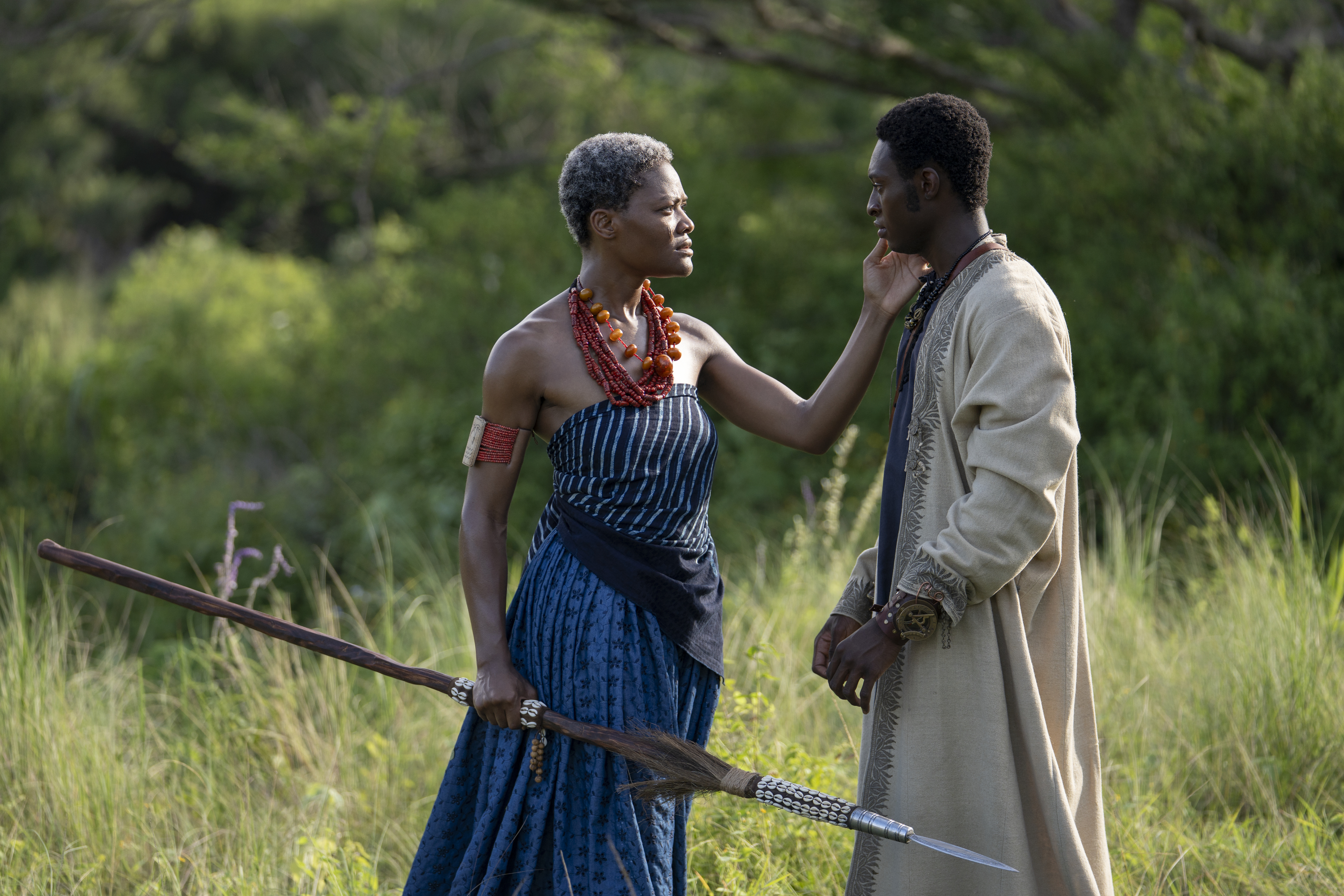
This story contains extensive spoilers for Washington Black. If you go into Washington Black completely blind, you’d expect the Hulu new miniseries to be a promising period drama filled with adventure and romance. In the first few minutes, viewers follow the titular hero through an ordinary day: experimenting with his flying machine and going to work at the Halifax docks, until his life changes forever when he meets an alluring woman named Tanna Goffe (Iola Evans). It takes 13 minutes for the series to reveal the dark history that he cannot escape: George Washington Black ran away from a Barbados slave plantation as a child, with a bounty hunter on his tail.
The eight-episode series, adapted from Esi Edugyan’s acclaimed 2018 novel of the same name, concurrently follows Wash’s life as an adult and the start of his journey, when the then-11-year-old (played by Eddie Karanja) was taken under the wing of wealthy abolitionist inventor Christopher “Titch” Wilde (Tom Ellis). If the book-to-screen adaptation followed the same linear timeline as the novel, a majority of Wash’s story would be spent on his relationship with Titch, and the series would primarily be a subversive examination of the "white savior” trope. That would be a fine show, but I would've been left frustrated. Instead, Washington Black makes several elevated changes to establish Wash as the active protagonist of his own story, rather than a man who is reactive to his place in a society built by white men.

Let me be clear: In the Black Twitter debate over depictions of suffering in film, I am not a hardline “no more slave movies” girl. I recognize that, at a time when history is literally being removed from the public record, nuanced movies about the horrors of the past are necessary to connect those horrors with the present and warn against history repeating itself. But unfortunately, shows like Roots and The Underground Railroad are outliers. Most of the period pieces made about Black people are often either traumatizing torture porn, flimsy racial utopias with color-blind casting, or more focused on the white character’s absolution than the Black character’s development. We already have enough shows about the Titchs of the world, and thankfully, the Washington Black miniseries isn’t another one.
Instead, show creator Selwyn Seyfu Hinds gives Wash and the other Black characters more agency and freedom to exist outside of white influence. Wash’s time in Nova Scotia is just one of the book’s four parts, and Wash lives an empty existence until he meets another benefactor in the form of Tanna and her white father (played by Rupert Graves). In the show, however, Wash is passionately swept up in his work before he meets Tanna. He has also found the protector that Titch could never have truly been in Medwin Harris, a minor role from the book that was expanded, with Paradise star Sterling K. Brown pulling double-duty as both actor and executive producer. Later on, Wash’s confrontation with Willard, the slave catcher who has been hunting him for half a decade, is not meant to be the grand finale; it happens in episode 6, with ample time for Wash to move forward without any harbinger of slavery hanging over his head.

The final episode of Washington Black expands the story into a new frontier that I hope to see more of in Hollywood—one where Black period pieces can fully go from harmful to healing. It begins by following the path the book laid; Wash discovers that Titch is still alive and goes to Morocco to confront him, realizing that the white man cannot get past his own childhood trauma. (Hurt people hurt people, antebellum edition.) The book ends ambiguously, only hinting at a future for Wash and Tanna, but the show follows their next adventures. Wash finally builds his flying machine and sails it to his ancestral homeland, Dahomey. There, he’s welcomed by his mother’s former community and learns that before she was enslaved, she was one of the king’s prized female warriors.
Being back home, Wash is also able to reconnect with his mother in a dream. The two communicate, and she explains that she never told him that she was his birth mother because it was better that he didn’t know the truth of his parentage, when they could be ripped apart at any moment. In that moment, Washington Black produced something I’ve never seen before: an exploration of an enslaved woman’s life that not only decentered her captivity but also honored the heartbreaking sacrifice she made rather than lingering on the horrors inflicted upon her.

Washington Black may be a slave story, but it subverts everything about the subgenre. Black characters are given the space to exist outside of pure terror and survival, to find community support, fall in love, and dream of a more equitable world, and the series manages to never falter from wider historical accuracy. The adaptation's take on Wash’s story is the show I need to watch at this moment, to remind me that even in the most authoritarian times, joy and community can be acts of defiance that ensure that we remain free.







